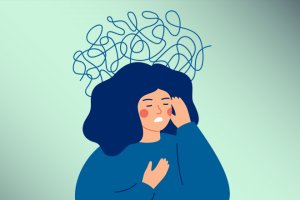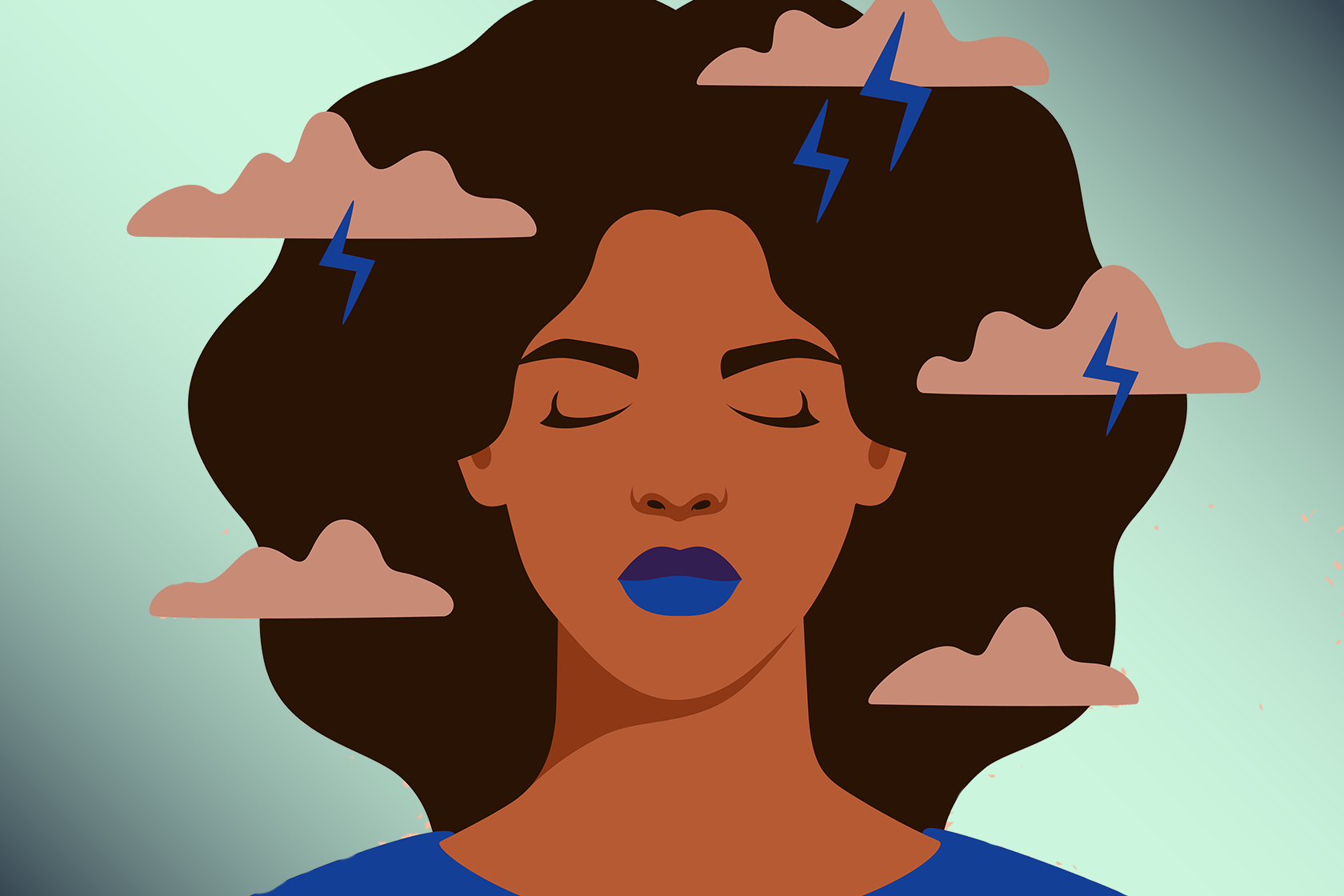Always tired? Sensory overload might be to blame

Sensory overload can happen to all of us, and when it does, your mental health can take a hit. Here’s why it happens and how to cope.
Hands up if you’re tired. Everyone got their arm in the air? We’re not surprised.
Absolute exhaustion seems to be our baseline state these days. Blame the busyness of our modern lives, the constant bombardment of information from all angles and our struggle to get proper rest in the midst of the glorification of productivity above all else.
All the usual suspects are at play when it comes to our tiredness levels, and it’s absolutely true that we need to prioritise rest to counteract these issues. But there’s one other cause of energy depletion that you might not be aware of: sensory overload.
What is sensory overload?
In the simplest terms, sensory overload is exactly what it sounds like: one or more of your senses is overwhelmed with information.
Say you’re in a place where it’s too noisy or your clothes are itching your skin or there are flickering lights or someone’s wearing a perfume that’s assaulting your nose. You’d find it pretty hard to focus on anything else, right?
“Sensory overload is when your brain is overstimulated by your environment,” explains Karina Antram, executive coach, nutritionist and author of Fix Your Fatigue. “Our five senses of smell, touch, taste, hearing and sight process too much information from our external environment, which can leave us short term feeling irritable, stressed and anxious.”
Sensory overload symptoms
Some signs you’re experiencing sensory overload include:
- anxiety
- irritability
- restlessness/feeling unable to relax
- difficulty focusing
- a strong urge to escape or block out the sensory overload, perhaps by covering your ears or leaving the room
- exhaustion
- feeling hot and sweaty
- struggling to breathe
Causes of sensory overload
Sensory overload is caused by external factors (a busy office, uncomfortable clothes, a restaurant with lots of noise, lights and smells), but it’s more common among those who fall under the neurodiversity umbrella. It’s often associated with autism, but is also prevalent among those with anxiety. And really, it can happen to absolutely anyone, particularly if other triggering factors – such as a lack of sleep or high stress levels – are at play.
“Interestingly there are a number of other conditions associated with sensory overload, such as fibromyalgia, where people experience different pain points all over their body, autism, PTSD and chronic fatigue syndrome,” adds Antram.

How sensory overload could be making you more tired
Any time you experience sensory overload, your brain has to work really, really hard.
“When our brain has to compete with lots of different sensory information gleaned from the external environment, it cannot process it all at once or know which information to prioritise,” writes Antram in her book.
This mental strain can quickly pile up and turn into energy depletion. Then when you add in the physical effects of sensory overload – that classic fight or flight response – it makes sense that if you’re regularly experiencing this, you’ll be absolutely exhausted by the end of each day.
The tricky thing is that few of us are aware of sensory overload and just how much it can impact us. We also might not notice the smaller moments of sensory overwhelm that sap up our energy in gradual drips and drabs. So we’ll be wiped out physically and mentally, then beat ourselves up for it – I didn’t even do much today, we tell ourselves, when in fact, our brains have been bombarded with sensory information nearly non-stop.
You may also like
“Autism made me feel like I was on an alien planet – now I’m sharing the reality of neurodiversity on a hit Netflix show”
How to reduce sensory overload
There are some simple steps you can take to reduce the risk of sensory overload and its impact on your energy levels. Let’s break them down.
Be aware of sensory overload and how it affects you
Awareness is the first step. Recognise that sensory overload can make you anxious and tired, and learn to spot the signs that it’s happening. Stop beating yourself up for how it affects you. Be gentle and give yourself the time and space to rest and recover.
Check your workplace
“Consider the type of workplace you work in,” recommends Antram. “Have you chosen the right type of organisation? You may prefer to work somewhere with break-out areas, a smaller firm or have the ability to work from home when you need to recharge your mind and body.”
You might need to ask for flexibility or small tweaks to make your workplace work for you. Perhaps that’s being able to wear headphones when you’re doing deep work, having quiet areas or being able to work from home (where you’ll be able to control environmental triggers) more regularly.
You may also like
“I failed to recognise my hoarding behaviours because I didn’t match the stereotypes I’d seen on TV”
Understand your triggers
Different things may be triggering for different people. Get to know what sets you off. Antram suggests asking yourself: “What environments are you best suited to and which do you find difficult?
“Spend more time in environments that suit you that may not have lots of bright artificial lights, loud music and are very busy,” she notes.
Have tech-free time
Technology is a common trigger of sensory overload – think of all the notifications, bright lights and noise. Schedule some periods of time throughout your week that are free from screens.
Don’t overdo it
Sensory overload happens when all that stimulation becomes too much. That doesn’t mean you have to totally avoid anything noisy, bright or exciting. It just means that you might want to limit how much time you spend in these environments and make sure that you take time away to recharge.
Use breathwork to calm your nervous system
To deal with the immediate effects of sensory overload, use breathing techniques to soothe your mind and body and ground you in the present moment. Mindfulness and meditation are also helpful tools.
Take regular breaks to do nothing
The opposite of sensory overload: doing and taking in nothing.
“Take regular brain breaks to avoid overstimulating your brain,” Antram suggests. “This could include lying down and shutting your eyes for five minutes, having a stretch or doing absolutely nothing.”
Fix Your Fatigue by Karina Antram is out now.
Frame Of Mind is Stylist’s home for all things mental health and the mind. From expert advice on the small changes you can make to improve your wellbeing to first-person essays and features on topics ranging from autism to antidepressants, we’ll be exploring mental health in all its forms. You can check out the series home page to get started.
Images: Getty; Stylist
Source: Read Full Article